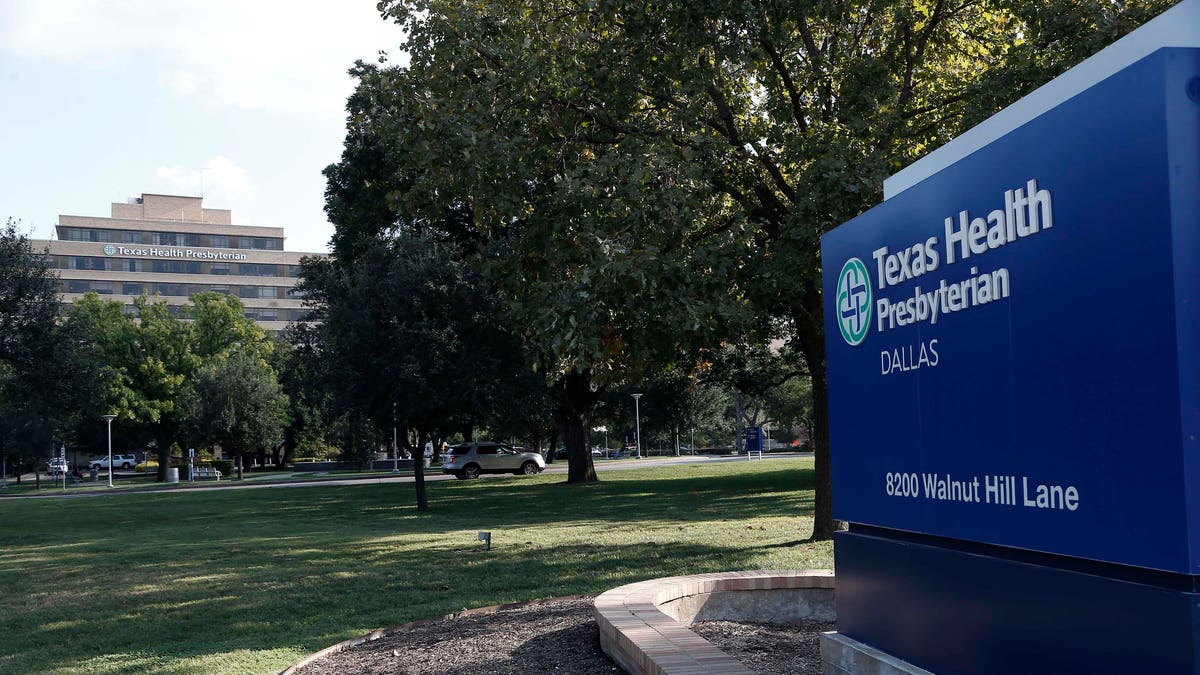
A general view of the Texas Health Presbyterian Hospital in Dallas, Texas September 30, 2014. REUTERS/Brandon Wade
Texas Health Presbyterian treated the first patient diagnosed with Ebola, and on Sunday 60 Minutes revealed details about what really happened, Forbes reported.
In an interview with four of the nurses who treated Thomas Eric Duncan, 60 Minutes’ Scott Pelley learned the story of what happened from Sept. 25— when Duncan first came to the hospital with a fever— until Oct. 8, when Duncan died.
Here are four details revealed during the segment:
1. Duncan did not tell authorities about his exposure to Ebola.
According to the nurses, when Duncan first arrived at the hospital, he only said he’d returned from “Africa” and did not specify that he had come from Liberia, or even West Africa. At that time, his symptoms were not severe yet, and, with no real reason to think he had the deadly virus, he was sent home.
Three days later, Duncan’s condition was much worse and he was re-admitted to the hospital. The hospital suspected Ebola, but Duncan denied having been exposed to anyone who was sick from Ebola. Later reports revealed that he had helped carry an Ebola-infected woman to a hospital in Liberia.
State and federal officials asked Duncan if had been exposed to anyone who died in Liberia. According to one nurse, Duncan told her that the family had buried his daughter in childbirth but said that it was not Ebola. After the nurse reported this to the Texas Department of Health, Duncan denied his own story.
2. The hospital— like the nation— was unprepared.
Texas Health was reportedly in the middle of Ebola training when Duncan was admitted, and public health officials have repeatedly said that nearly any hospital would have faced challenges with an unexpected Ebola patient.
In the 60 Minutes interview, the nurses said that the guidelines for personal protective equipment were initially unclear. When they first treated Duncan on Sept. 28, they wore gowns, masks, gloves and face shields— but their necks were exposed.
The hospital has been blamed for this lack of sufficient protection, but the nurses said they looked up and used Centers for Disease Control and Protection (CDC) guidelines. All four nurses told 60 Minutes they believed the protocol to be deficient.
Within 48 hours, Texas Health had their staff in suits that did not expose any skin, three weeks before the CDC made it the new national standard.
3. Duncan presented unprecedented challenges.
Treating Duncan was unlike anything the hospital care team had done before, the nurses said. First, the 24-bed medical intensive care unit was emptied. Staff were informed that they had an Ebola patient and were given the option to opt out. All staff members— from doctors to nurses to housekeepers— who cared for Duncan were volunteers.
Nurses worked a pair at a time in two-hour shifts that left them soaked in sweat under their full-body protections, 60 Minutes found.
Duncan was producing a huge amount of bodily fluids that were all hazardous waste that could infect someone else.
“I’ve been in health care for nearly 20 years,” ICU nurse John Mulligan told 60 Minutes, “and I’ve never emptied as much trash as just from the waste of his constant diarrhea.”
4. The nurses are still nervous.
Nurses Nina Pham and Amber Vinson were infected with Ebola. While both have since recovered, the other nurses who treated Duncan remain concerned. Some are still within the 21-day incubation period for the virus and are self-monitoring for symptoms.
One nurse told 60 Minutes he has repeated nightmares of his coworkers becoming infected and dying.
The experience of treating Duncan also left its mark as they did everything to try and save him.
“It was the worst day of my life,” Mulligan told 60 Minutes. “This man that we cared for, that fought just as hard with us, lost his fight. And his family couldn’t be there.”
“I was the last one to leave the room. And I held him in my arms. He was alone.”
